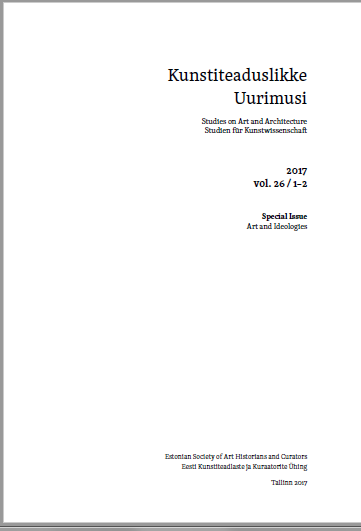Ideology as World-View and Two Early Avant-Garde Movements
Ideology as World-View and Two Early Avant-Garde Movements
Author(s): Aleš ErjavecSubject(s): Aesthetics, Political history, Marxism, History of Communism, Fascism, Nazism and WW II
Published by: Eesti Kunstiteadlaste Ühing
Keywords: Ideology; Avant-Garde Movements; anarchism; nationalism; Marxism; fascism;
Summary/Abstract: In this essay, the author focuses on some major ideologies interpreted as worldviews and on their roles in two well-known early avant-garde movements, Italian futurism and Russian constructivism. He starts with a discussion of ideology and observes that all avant-gardes were to some extent influenced by various ideologies. He suggests that in the two mentioned cases the main ideologies were anarchism, nationalism, Marxism and fascism. In the author’s view, all such designations are only provisional and partial; due to their intertwining and changeability, they possess only limited theoretical and methodological value. In spite of differences, the Italian and the Russian movements also possessed numerous shared features. The author then shows how overalls came to be projects for these two avant-garde movements: the tuta (in Italy) and ‘production clothes’ (prozodezhda) in Russia. He then describes both projects and argues that they share a similar starting point. He furthermore notes the disintegration or transformation of some of the world-views studied. He claims that anarchism had the greatest ideological influence on the early avant-garde movements.
Journal: Kunstiteaduslikke Uurimusi
- Issue Year: 26/2017
- Issue No: 01+02
- Page Range: 15-32
- Page Count: 18
- Language: English
- Content File-PDF

